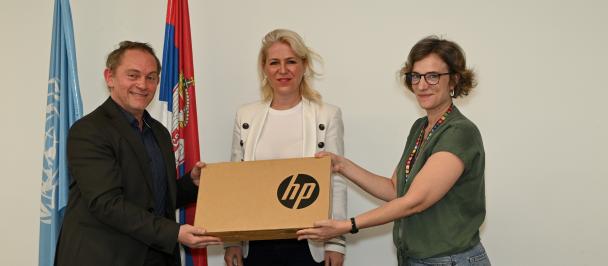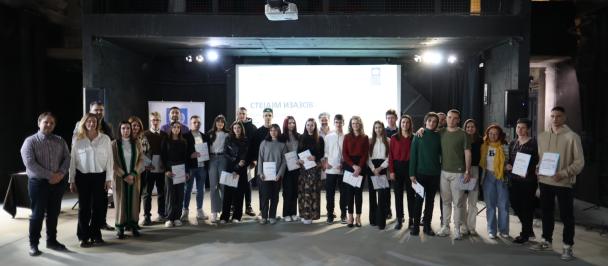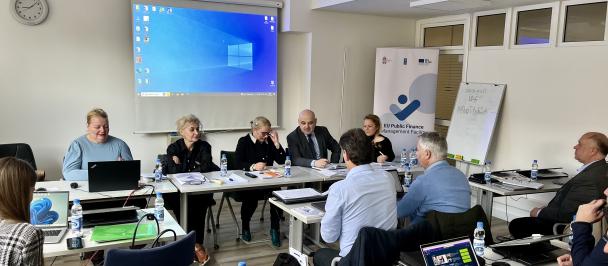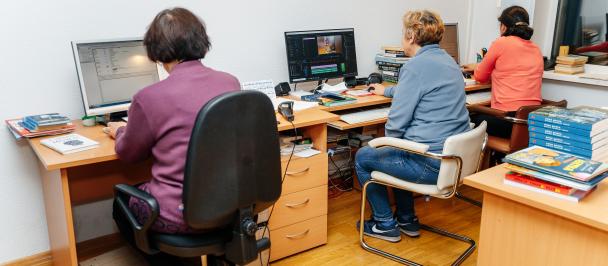Digital Transformation for Sustainable Development: UNDP Validates Initiative to Promote Inclusive Digital Transformation in Malawi
July 27, 2023
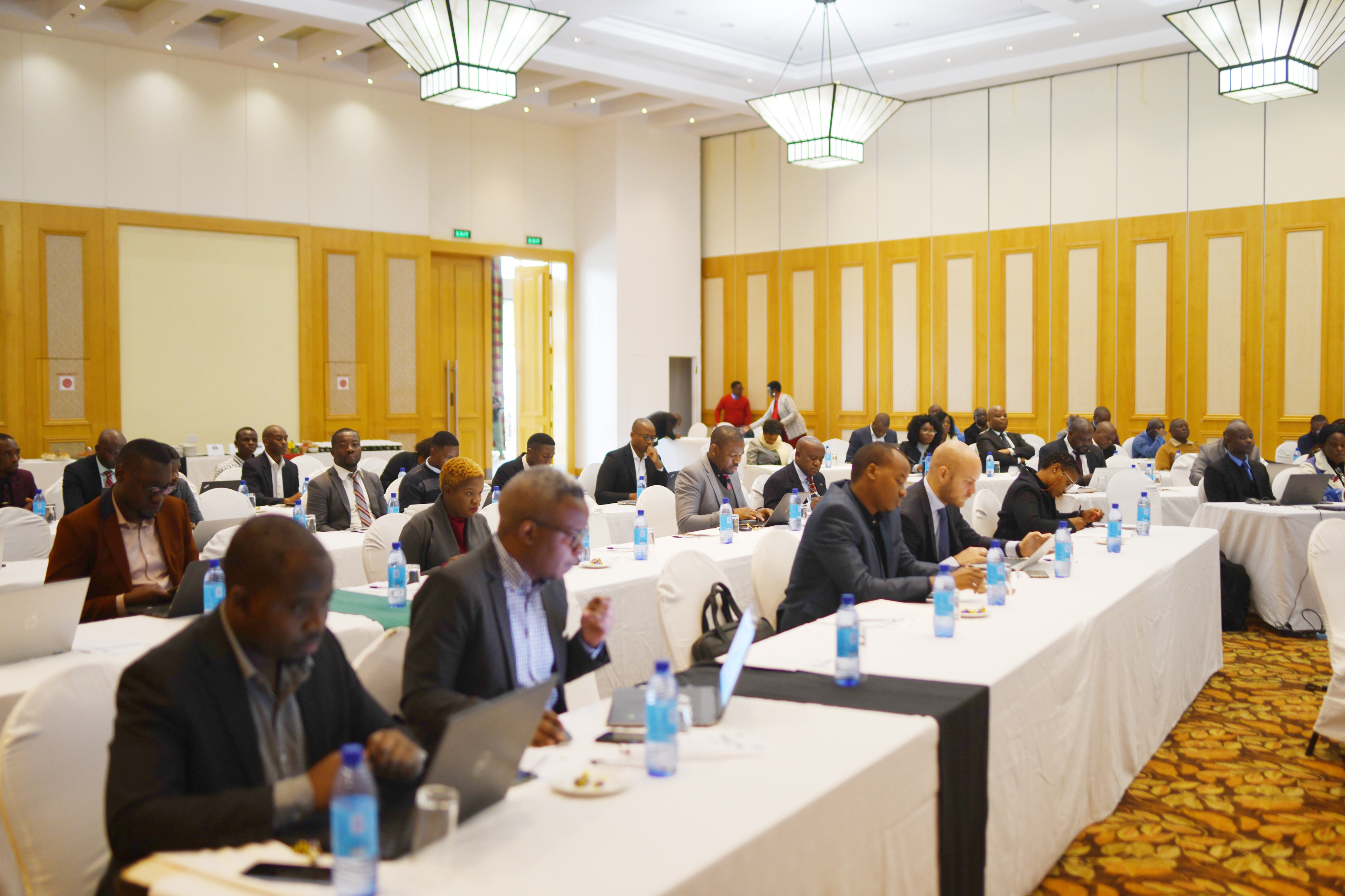
Lilongwe, July 27, 2023 — On Thursday 13 July 2023, the United Nations Development Programme (UNDP) in partnership with the Government of Malawi unveiled a groundbreaking initiative focused on fostering inclusive digital transformation in Malawi during a Project Validation workshop including MDAs, Private Sector, CSOs, Universities and Development Partners.
Building upon a series of consultations earlier this year, which formed a crucial part of a needs assessment process, this initiative takes a step forward to comprehend the digital development challenge and possible solutions. Recognizing the vital role of digitalization in driving progress towards the Sustainable Development Goals (SDGs), the proposed project emphasizes the need for purposeful inclusivity, thoughtful design, and human-centric implementation to ensure that the benefits of digital transformation reach all segments of society.
The National Registration Bureau (NRB) has worked closely with the United Nations Development Programme (UNDP) to develop the Digital Public Infrastructure (DPI) project to foster economic development in a digital climate for Malawi. Presiding over the validation workshop was the Principal Secretary of NRB, Mr Mphatso Sambo who remarked, “Given that National Identification (NID) is a fundamental component of DPI, NRB has the responsibility to provide universal legal identity to all Malawian citizens. NRB has already registered over 10 million adult Malawians, aged 16 and above, for the National ID.”
While digital transformation has emerged as a powerful force for societal change, it alone cannot guarantee SDG attainment, particularly in countries like Malawi, where a staggering 80% of the population still lacks access to digital technology and services. . To address this digital divide and build a more open, transparent, and sustainable society, the proposed project underscores the importance of prioritizing inclusivity and placing people's rights at the core of all digital initiatives. During his presentation, the Director of E-Government, Patrick Machika highlighted the key roles of digital governance stating, “The role of digital governance is to establish the strategic goals and direction for digital transformation initiatives that must be aligned with the organization's overall objectives, define decision-making processes and frameworks for digital transformation projects at all levels of the organization and Identify and manage risks associated with digital transformation among others.”
The current internet penetration rate in Malawi stands at a meager 20.2% of the total population, with only 4.03 million internet users out of a population of 19.91 million. These statistics highlight the urgent need to bridge the digital gap in the country. The proposed project aims to tackle this challenge and create a holistic approach to inclusive digital transformation in Malawi, ensuring that all segments of society can benefit from technological advancements to narrow this gap, there exists significant potential for more Malawians to embrace digital interventions, particularly with cellular devices. Speaking at the workshop, the Director General of the Malawi Communications Regulatory Authority (MACRA), Mr Daud Suleman highlighted this potential stating, “There lays an opportunity in that we have a good chunk of Malawians who have become digitally financial and can use a mobile phone to transact, they can use a mobile phone to top up, and they can use a mobile phone to manage funds.”
The proposed project calls for a whole-of-society approach to achieve true inclusivity, necessitating active and continuous engagement from the government, private sector, civil society, academia, and individual residents. This collaboration aims to develop and strengthen local digital ecosystems that prioritize inclusivity, sustainability, accountability, and rights. UNDP's Inclusive Whole-of-Society Digital Transformation Framework serves as a guiding resource, outlining the essential domains and areas for collaboration across society.
The proposed project will focus on three core areas to drive inclusive digital transformation:
1. Inclusive Digital Infrastructure: The initiative will establish a safe, trustworthy, and open digital infrastructure to enable widespread access to digital services. By enhancing the availability and reliability of digital connectivity, the project aims to ensure that all individuals, regardless of location or background, can participate in the digital economy.
2. Strengthening Digital Governance: Recognizing the importance of robust governance frameworks, the project will work towards enhancing digital governance mechanisms in Malawi. This will involve fostering transparency, accountability, and responsible use of digital technologies to safeguard individuals' rights and promote a secure digital environment.
3. Bridging the Digital Divide: The project seeks to provide last-mile access to digital opportunities, ensuring that marginalized and remote communities have equal access to digital tools, services, and information. By addressing the digital divide, the initiative aims to empower individuals and communities to participate fully in the digital economy and benefit from the opportunities it presents.
At the validation workshop, the Acting Resident Representative of UNDP, Mr Challa Getachew, raised the importance of digital inclusion stating, “By creating a more inclusive and equitable digital economy, we can stimulate innovation, create new jobs and industries, and unlock new opportunities for growth and prosperity. We can also promote greater social inclusion, by enabling people with disabilities, the elderly, and other marginalized groups to access information, services, and opportunities that were previously unavailable to them.”
The proposed project aspires to trigger a comprehensive transformation in Malawi, by incorporating the key areas of the Inclusive Whole-of-Society Digital Transformation Framework. The initiative acknowledges the country's specific needs and context while leveraging UNDP's national expertise in inclusive digital transformation and harnessing the forthcoming digital ID system to unlock new possibilities. The project validation process marks a significant milestone in Malawi's journey towards inclusive digital transformation, demonstrating UNDP's commitment to leaving no one behind in the digital era. The initiative aims to drive social change at scale through strategic partnerships and broad coalitions cutting across sectors and build a more prosperous and equitable future for all.
Principal Secretary of NRB, Mr Mphatso Sambo, Director of E-Government, Patrick Machika, Director General of MACRA, Mr Daud Suleman, acting Resident Representative of UNDP, Mr Challa Getachew, and the Malawi Electoral Commission (MEC) Chairperson, Justice Chifundo Kachale presided over the validation workshop, which was attended by other high-level officials.
For more information, contact UNDP Malawi Communications at comms.support.mw@undp.org
About UNDP
The United Nations Development Programme (UNDP) works in nearly 170 countries and territories, partnering with people at all levels of society to build nations that can withstand crises, drive sustainable development, and improve the quality of life for all. UNDP is committed to supporting countries in their efforts to achieve the Sustainable Development Goals and leave no one behind.

 Locations
Locations